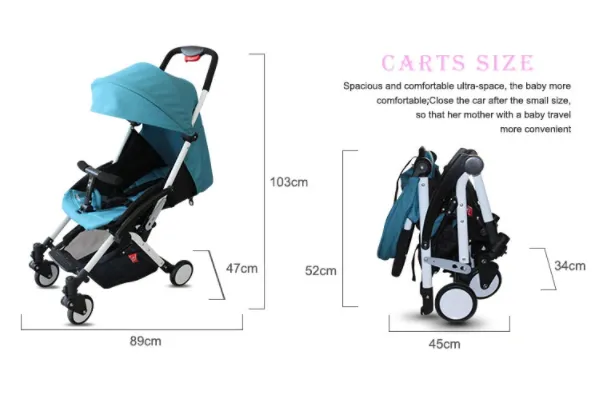
- Afrikaans
- Albanian
- Amharic
- Arabic
- Armenian
- Azerbaijani
- Basque
- Belarusian
- Bengali
- Bosnian
- Bulgarian
- Catalan
- Cebuano
- Corsican
- Croatian
- Czech
- Danish
- Dutch
- English
- Esperanto
- Estonian
- Finnish
- French
- Frisian
- Galician
- Georgian
- German
- Greek
- Gujarati
- Haitian Creole
- hausa
- hawaiian
- Hebrew
- Hindi
- Miao
- Hungarian
- Icelandic
- igbo
- Indonesian
- irish
- Italian
- Japanese
- Javanese
- Kannada
- kazakh
- Khmer
- Rwandese
- Korean
- Kurdish
- Kyrgyz
- Lao
- Latin
- Latvian
- Lithuanian
- Luxembourgish
- Macedonian
- Malgashi
- Malay
- Malayalam
- Maltese
- Maori
- Marathi
- Mongolian
- Myanmar
- Nepali
- Norwegian
- Norwegian
- Occitan
- Pashto
- Persian
- Polish
- Portuguese
- Punjabi
- Romanian
- Russian
- Samoan
- Scottish Gaelic
- Serbian
- Sesotho
- Shona
- Sindhi
- Sinhala
- Slovak
- Slovenian
- Somali
- Spanish
- Sundanese
- Swahili
- Swedish
- Tagalog
- Tajik
- Tamil
- Tatar
- Telugu
- Thai
- Turkish
- Turkmen
- Ukrainian
- Urdu
- Uighur
- Uzbek
- Vietnamese
- Welsh
- Bantu
- Yiddish
- Yoruba
- Zulu
Nov . 17, 2024 01:19 Back to list
how to adjust rear derailleur on mountain bike
How to Adjust the Rear Derailleur on a Mountain Bike
Adjusting the rear derailleur on a mountain bike is essential for optimal shifting performance and overall riding experience. A properly adjusted derailleur ensures smooth gear changes, enhances drivetrain efficiency, and can prolong the life of your components. Whether you're troubleshooting shifting problems or simply performing regular maintenance, this guide will walk you through the necessary steps to adjust your rear derailleur effectively.
Tools You Will Need
Before you begin, you'll need a few tools - A Phillips screwdriver (if your derailleur has limit screws that are not hex). - A 2.5mm or 3mm Allen wrench, depending on your derailleur model. - A bike stand (optional but recommended for ease of access). - A clean rag. - Lubricant for your chain and derailleur components.
1. Inspect the Derailleur
Start by inspecting the rear derailleur for any signs of damage or excessive wear. Check the chain for stiffness, rust, or dirt buildup that could affect performance. A clean and well-lubricated chain is crucial for smooth shifting. If your derailleur is bent, it may need to be straightened or replaced.
2. Set the Limit Screws
The first step in adjusting your rear derailleur is to set the limit screws, which prevent the chain from shifting off the cassette. These screws are often marked as H (high) and L (low)
- High Limit Screw (H) This screw controls the derailleur's movement when shifting to the smallest cog (highest gear). To adjust it - Shift to the smallest chainring in the front and the smallest cog in the back. - Check if the derailleur’s outer plate is aligned with the smallest cog. If not, use the H screw to adjust the position until it is properly aligned. Turn the screw clockwise to move the derailleur inward and counterclockwise to move it outward.
- Low Limit Screw (L) This screw controls the derailleur's movement when shifting to the largest cog (lowest gear). To adjust it - Shift to the largest chainring in the front and the largest cog in the back. - Ensure that the derailleur’s inner plate is aligned with the largest cog. Adjust the L screw as necessary to achieve proper alignment.
3. Cable Tension Adjustment
how to adjust rear derailleur on mountain bike

Once the limit screws are set, you may need to adjust the cable tension to achieve smooth shifting
. This is done using the barrel adjuster, which is usually located on the derailleur or the shifter- If your bike is having trouble shifting to a higher gear, increase the tension by turning the barrel adjuster counterclockwise. - If it struggles to shift to a lower gear, decrease the tension by turning the barrel adjuster clockwise.
Make small adjustments and test the shifting after each change. This process may require several iterations to achieve optimal results.
4. Fine-Tuning Shifting
After adjusting the cable tension, it’s time to fine-tune the shifting across all gears. Shift through the gears, both up and down, to check for any hesitations, skipping, or rubbing noises. If shifting is not smooth
- Reassess the cable tension and limit screws. Sometimes, a minor tweak can make a significant difference. - Check the derailleur hanger alignment. A misaligned hanger can affect the derailleur's position and shifting performance.
5. Final Check and Lubrication
Once you are satisfied with the shifting performance, give your drivetrain a final inspection. Clean any residue off the derailleur and chain. Apply a small amount of lubricant to the chain, pivot points on the derailleur, and any moving parts, being careful not to over-lubricate, as excess lube can attract dirt.
Conclusion
Adjusting the rear derailleur of your mountain bike is a straightforward process that can significantly improve your ride. Regular maintenance and adjustments will keep your bike in top condition, allowing for smooth and reliable shifting on your mountain biking adventures. Remember that practice makes perfect; don’t hesitate to experiment with adjustments to find the optimal settings for your bike. Enjoy the trails!
-
The Ultimate Kids' Four-Wheeler Experience
NewsJul.09,2025
-
The Ultimate Guide to Mountain Bikes: Gear Up for Your Ride
NewsJul.09,2025
-
The New Age of Cycling: Electric Bikes for Every Rider
NewsJul.09,2025
-
The Best Kids Bicycles: Ride in Style and Safety
NewsJul.09,2025
-
The Best 3-Wheel Scooters for Kids: Fun, Safety, and Adventure
NewsJul.09,2025
-
Revolutionize Your Ride: Affordable Electric Bikes
NewsJul.09,2025
-
Finding the Perfect Mountain Bike for Every Rider
NewsJul.09,2025



